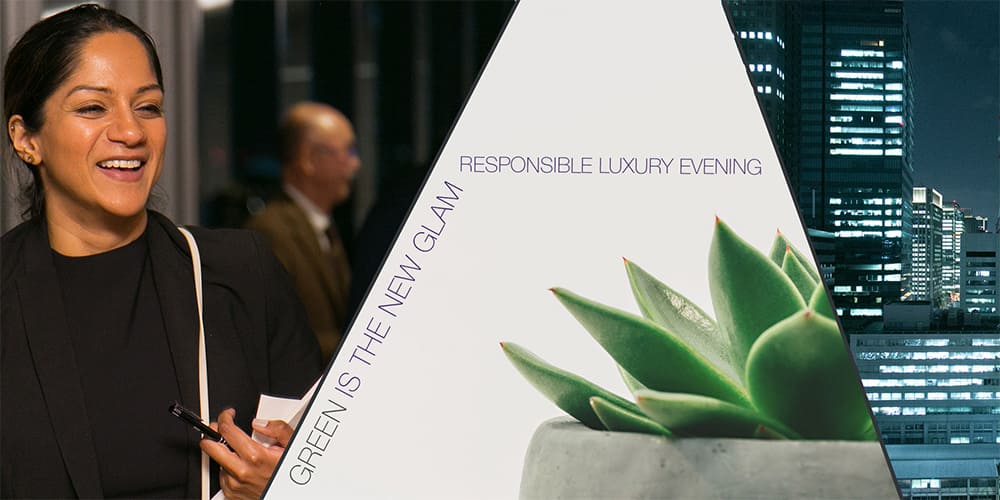Member? Please login
Green is the new glam – responsible luxury evening

Written by Sterling Content
February 27, 2018
Past Event Round Ups
On February 21 the BCCJ hosted “Responsible Luxury” an event that brought together some of the best of British luxury brands to discuss successes and challenges in the Japanese market.
The luxury goods sector of the British economy accounts for 8% of total exports, contributes more in taxes than horse racing and the Premier League, and despite global uncertainties is growing year on year.
Defined by names such as Dunhill, Burberry, Jo Malone, Cunard, and Aston Martin, the UK luxury market is known for top-tier brands across multiple sectors, from fashion and jewellery, to automotive and travel, and hospitality to interiors.
Even through a period of slow GDP growth, such brands continue to make impressive sales domestically and abroad, and the value of the sector to the overall economy is clear, with sales of £32.2 billion, accounting for 2.2% of the country’s GDP. Employing 113,000 people across the UK alone, the sector brings £5.2 billion to the Exchequer through Corporation Tax, Income Tax and National Insurance contributions.
But how does this translate to success in Asia and more specifically in Japan? What are the UK’s flagship brands doing differently to cater to the demands of this mature and sophisticated market? How are they attracting and retaining not only new customers but also employees? And how can they adapt to the discerning consumers desire for a fit between luxury and social responsibility?
On the evening of February 21, British brands gathered to exchange notes with their peers, over wine and a light dinner at the dining room of Berry Bros and Rudd – the UK’s oldest wines and spirits merchant, supplier to the royal family since the reign of King George III.

In Japan, UK luxury goods exporters have plenty to be optimistic about as the country sees consumer spending on upmarket products reach around 3.6 trillion yen (about £24 billion) each year. This growth is expected to increase through repaired consumer confidence and the Bank of Japan forecasting GDP to rise by 1.3% in 2018.
Still, how is the concept of “responsible luxury” – premised on the belief that luxury brands must have sustainable practices embedded in their business ethos – moving forward?
As discussion flowed around consumer awareness of Corporate Social Responsibility (CSR) and eco-friendly behaviours, Natasha Senn of de Mamiel shared the phrase “Green is the new glam”.
While social responsibility is is not typically associated with luxury brands, UK firms understand that it is an effective combination of luxury and responsible practices (enriching society and the environment) that will drive innovation in their industry.
In the future, luxury brands must demonstrate that they do not in any way burden the environment or society. In fact, Responsible Luxury is aimed at creating a positive impact on both the community-at-large and the environment.

View all event photos HERE







